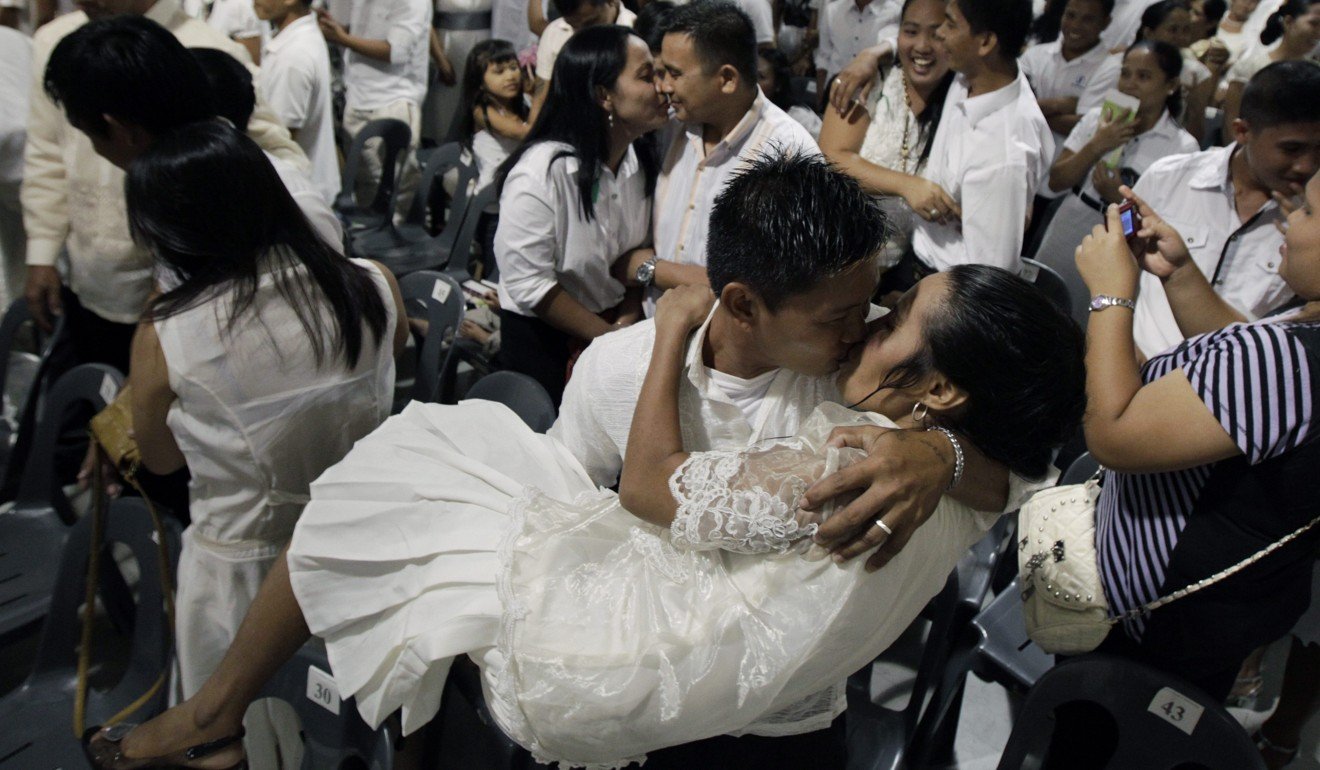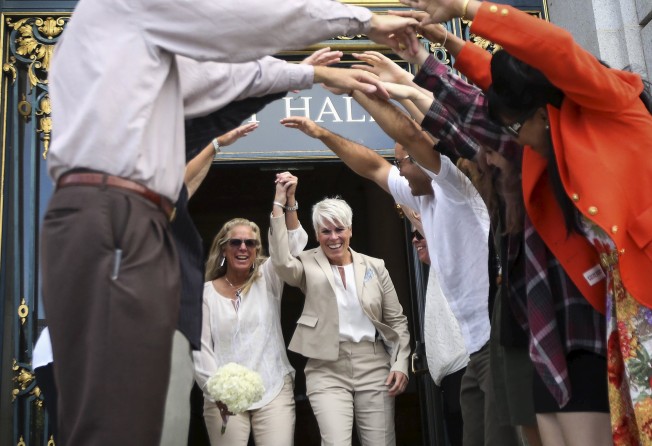
Same-sex marriage and the law: time for governments to step back from the altar

Recent court cases and subsequent policy changes on the recognition of same sex partnerships (“Breakthrough for LGBT rights as Hong Kong to recognise same-sex partnerships in spousal visa applications”, September 18) have sparked discussion about same-sex marriage. But a dispassionate discussion of same-sex marriage requires a clear distinction to be made between the word “marriage” and marriage/matrimonial laws.
The word “marriage” can be used in phrases such as “a marriage of two minds”. In cardboard box manufacturing, when two orders are simultaneously from the same roll width, they are said to be “married”. A villager might jokingly say that he is taking his cow to the local bull to get it “married”.
So, in the wider sense, the term “marriage” is just a matching of two (not three or more) entities with some common purpose.

Marriage laws around the world were enacted to protect children and the inheritance of property. Placing a relationship under marriage laws is in fact a precautionary measure against either partner not wishing to continue the relationship – as the relationship is turned into a contractual obligation. However, it may have advantages in terms of tax, priority in public housing allocation and immigration.
On the other hand, the immense difficulty of getting a divorce in some countries, such as the Philippines, discourages many from placing their relationship under marriage laws.
It could be argued that if a couple have complete confidence in their relationship and have proper wills made out, there is no need whatsoever for them to place their relationship under marriage laws.
Going back a century or two, couples would decide to live together and announce it only to the village neighbours. Later, churches in Europe invited such couples to have their relationships blessed and recorded in the church register. The marriage laws came well after these developments.

For the marriage laws to be restricted to couples of the opposite sex, gender needs to be accurately defined – is it a clearly visible body feature, a genetic feature, or a mental inclination? Can gender be changed? Must gender be either male or female and not a state in between?
In view of the high divorce rates worldwide, it could be argued that marriage laws should be totally abolished, and that it should once again be left it to churches and temples to bless those marriages that seek such blessings.
P.K. Lee, Tung Chung